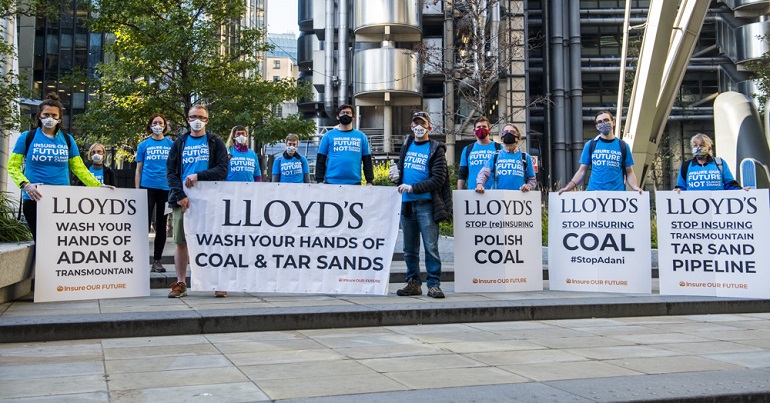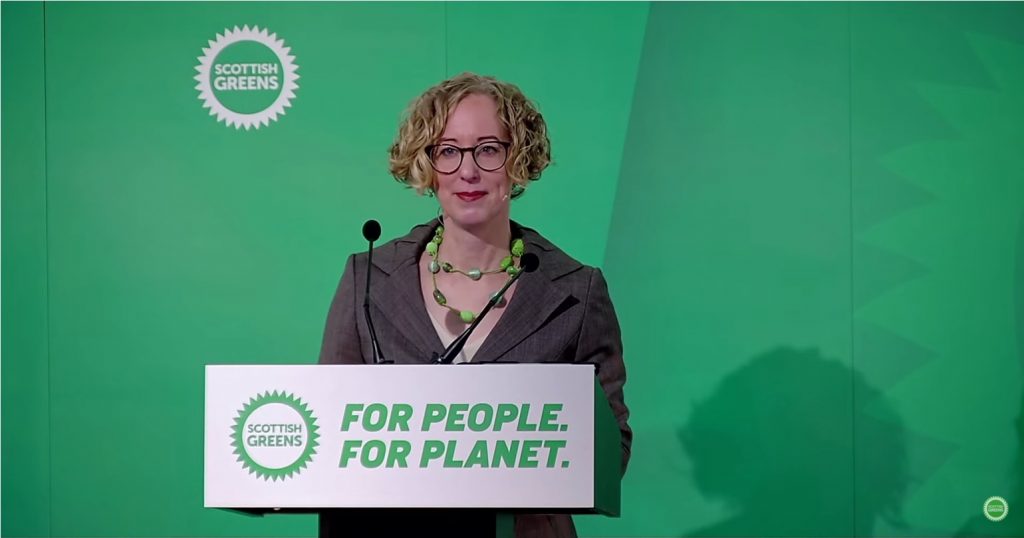Taking on insurance is key to the battle against coal

In that final plenary session at COP26 in Glasgow, the weaknesses of international climate summits were laid to bare. A simple word change from a “phase out” to a “phase down” of coal left activists and campaigners feeling dejected; scientists feeling ignored; and citizens of climate-vulnerable countries feeling betrayed.
Despite Boris Johnson’s protestations to the contrary in a press conference on Sunday, the difference between a phase out and a phase down of coal is vast. As Bloomberg states, it “leaves the door open for investment in some coal plants, especially if they’re equipped with technology to capture emissions”. It’s worth noting that India and China – widely seen as the main offenders behind this amendment – are far from the only guilty parties. One government minister from Australia – which has the highest coal emissions per capita in the world – even stated that the word change signified a “green light for us to build more coal mines”.
But for now (at least until COP27 in Egypt), these are the cards we’ve been dealt. So how do we play them? If international summits have thus far failed to prevent countries from dragging their feet on coal phase out, what are the alternatives?
One much underused lever of change is insurance – the financial safety net of the world. Whilst not the most riveting of topics, the insurance industry, worth over $5 trillion in total, has plenty of clout. If a company – let’s say, a mining company – wants to build a new project – let’s say, a coal mine – it will need insurance. If the insurer doesn’t like the sound of this coal mine, the company will be forced to look elsewhere to other insurers to secure the permission they need to get building. If no other insurers on the market are willing to provide support, they will have to self-insure – a highly financially risky and potentially destructive decision for a company to undertake. If a company finds itself unable or unwilling to self-insure, the coal stays in the ground.
How does this look in practice? Take a look at Australia’s largest ever coal mine – the Carmichael mine, funded by Adani, currently under construction. Should production start, the mine would extract 60 million tonnes of coal a year for 90 years, creating 4.6 billion tonnes of carbon emissions. But insurers have said no. Over forty insurance companies have so far refused to underwrite the project after public pressure, and the railroad needed to transport coal from the mine is now requiring AUD$50 million in self-insurance – putting the whole project at risk. Australian coal mine managers have gone on the record saying how hard it is to secure the insurance they need to build or maintain mines across the country.
And this is a global trend. Over 50% of the entire reinsurance market – the insurers which insure the insurers – is now covered by companies which have a policy in place to restrict their coverage of coal power, forcing insurers themselves to think twice before underwriting new, risky projects. And industry insiders say privately that even if companies haven’t yet publicly adopted policies to restrict coal insurance, they’re being increasingly selective over which energy projects they underwrite.
For progressive environmentalists, this may feel uncomfortably like a market-based solution. But it’s worth noting that the campaign calling on insurers to phase out fossil fuel underwriting – led by global coalition Insure Our Future – is grounded in grassroots and Indigenous activism. Support groups in dozens of countries target their national insurers on key projects, such as PZU’s backing of the toxic open-pit Turów mine in Poland. And First Nations groups are at the forefront of a Canadian campaign calling on insurers to back out of the Trans Mountain tar sands pipeline, which rides roughshod over their unceded territory. This is about encouraging insurers to use their might for good, not ill.
Nonetheless, there’s still a long way to go before coal is “phased down” to the extent we need to ensure we stay below 1.5°C of warming. At a side-event at the World Climate Summit’s ‘Investment COP‘ in Glasgow last week, I challenged David Howden, CEO of Europe’s largest insurance broker Howden Group, on whether insurers should continue to underwrite coal projects leading to climate destruction. He replied brusquely: “If you just shut down coal-fired power stations in India, all you’re going to do is kill people – is that what you want?” Yet privately, insurers will admit that pressure from climate campaigners is massively restricting the fossil fuel projects that they’re willing to take on.
So if you’re feeling dejected, ignored or betrayed by the outcome of COP26: call your insurer now, and challenge them on their underwriting policies; support grassroots activists and Indigenous groups being threatened by fossil fuel projects; and keep up the fight in dragging financial institutions into the 21st century.
PS. We hope you enjoyed this article. Bright Green has got big plans for the future to publish many more articles like this. You can help make that happen. Please donate to Bright Green now.




Thanks for all you do !